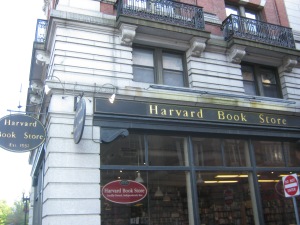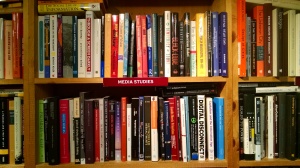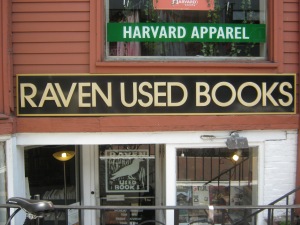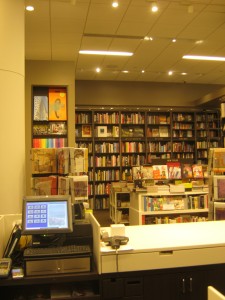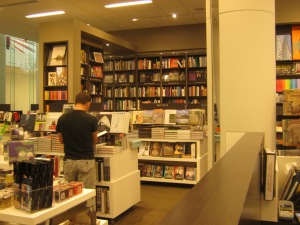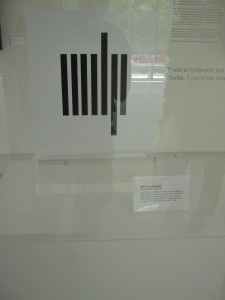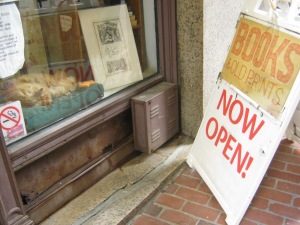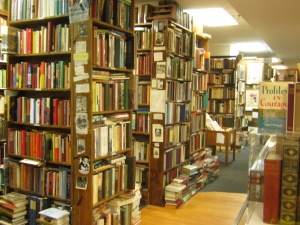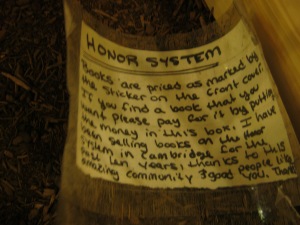Book Hunting in Boston
Week 2
MIT Coop
I went to MIT COOP opposite the MIT Press store to check for any affordable items to carry back home. But there were none. 🙁 Most of them were over budget for me. But then I checked their basement for stuff. And there I saw one of the most extensive line up for science books that I have seen. They were not just a minor section in the store which usually is the case, but were the major part.
All the interesting ones lined up in shelves. But sadly no discount and hence no buy 🙁
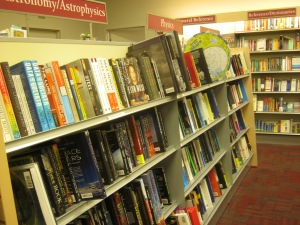


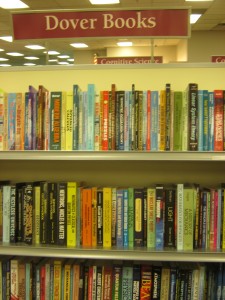


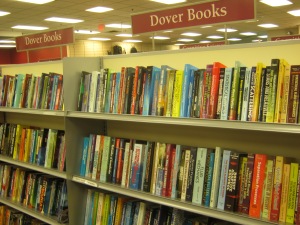
Also they have all the Dover Publications books in print at one place, sorted according authors. Wow! Too many for me to handle. 😀 But for display only for me did not buy anything. But sure was overwhelming to look at them, all at the same place.
Boston Public Library
This was unplanned for. We were just roaming around the downtown area. And came out near the Boston Public Library established in 1852. The outside decoration is in form of the various authors in all fields of study. A few glimpses of the library

Inscriptions on the building
McKim chose to have monumental inscriptions, similar to those found on basilicas and monuments in ancient Rome, in the entablature on each of the main building’s three façades. On the south is inscribed:
“MDCCCLII • FOUNDED THROUGH THE MUNIFICENCE AND PUBLIC SPIRIT OF CITIZENS“;
on the east:
“THE PUBLIC LIBRARY OF THE CITY OF BOSTON • BUILT BY THE PEOPLE AND DEDICATED TO THE ADVANCEMENT OF LEARNING • A.D. MDCCCLXXXVIII“;
and on the north:
“THE COMMONWEALTH REQUIRES THE EDUCATION OF THE PEOPLE AS THE SAFEGUARD OF ORDER AND LIBERTY“.
Another inscription, above the keystone of the central entrance, proclaims:
“FREE TO ALL“.
Below each second-story arched window on the three façades are inscribed lists of the names of great historical writers, artists, scientists, philosophers, and statesmen.
Across the street from the central entrance to the library is a twentieth-century monument to the Lebanese-born poet and philosopher Kahlil Gibran who as a young immigrant educated himself in the Boston Public Library. The monument’s inscription responds to the McKim building reading
“IT WAS IN MY HEART TO HELP A LITTLE, BECAUSE I WAS HELPED MUCH“.
The text is excerpted from a letter enclosed with Gibran’s generous bequest to the library.
The quote from Gibran definitely resonates with the experience that I have had with Internet Archive and GP (now sadly dead).
I lament that I did not go inside the library for the lack of time 🙁
Barnes & Noble, Prudential Tower
This was again unplanned for. We went to visit to Prudential Tower, the store just comes out as soon as you enter. Since I had heard about it, I did go in. They had some wonderful collections of books, but I did not get anything from there.

Rodney Book Store
Now this one was on the cards as per the original recommended list. I visited this one just before the day of departure. I could not get a photo of the entrance but only of the inside. The store is well stocked and well categorised.
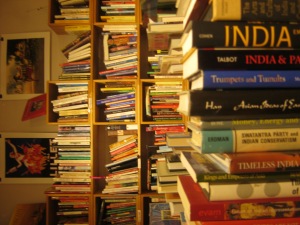
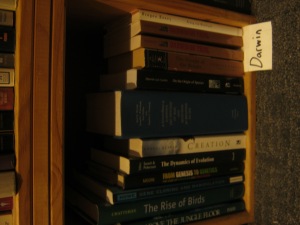
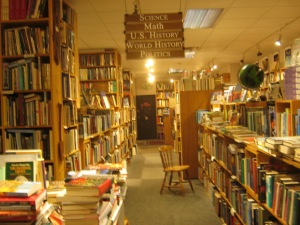


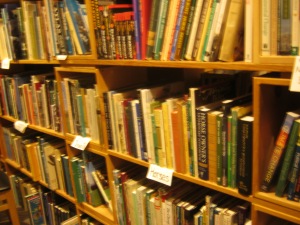
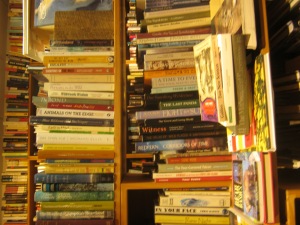
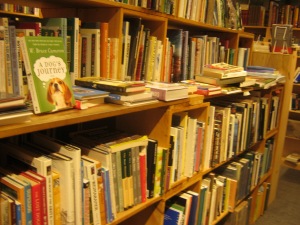
I wish I had more time at this store

I got the above books at the store. With this one on M. C. Escher by Escher collection of classics is almost complete.






